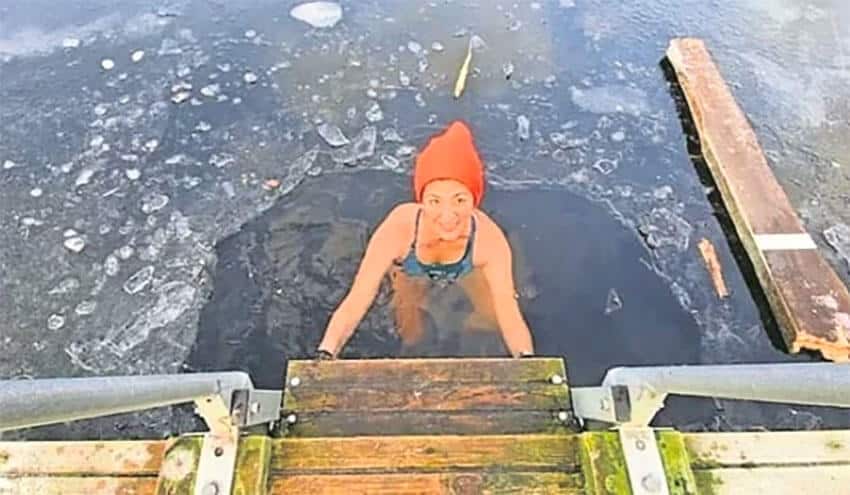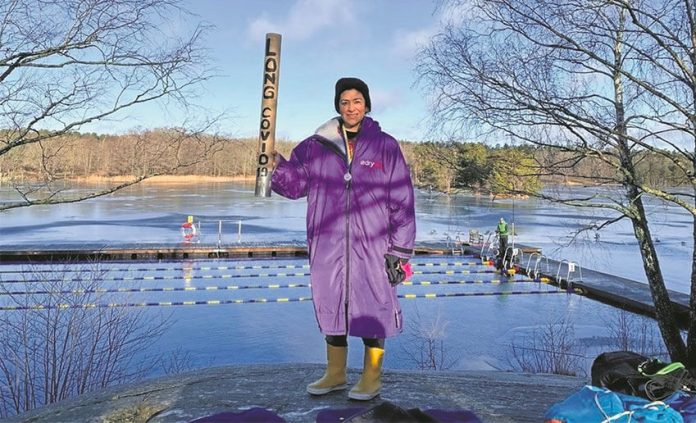A Mexican woman who found that icy water was an effective treatment for her long COVID symptoms won two medals at the 2022 edition of the Swedish winter swimming championships.
Originally from Mexico City, Angélica Cuapio is an immunology researcher at the Karolinska Institute, a medical university in Solna, part of the urban area of the Swedish capital Stockholm.
She was the only Mexican to compete at the Stockholm Winterswim Open – held last Saturday in a lake where ice is cracked to create a swimming course – and placed first in her age category for the 25 meters freestyle, third in the 25 meters breaststroke and fourth in the 4 x 25 meters breaststroke relay.
Water temperature in the lake was 1.9 C.
“… I won first place in the 40 to 44 years category,” Cuapio told the newspaper El Universal in an interview.

She also set a new record for the 25m crawl, finishing in just under 20 seconds.
“I competed because I’m a survivor of the pandemic. I had COVID-19 twice. The most recent time was so severe that I was taken to the emergency department twice,” the scientist said.
She told El Universal that she swims to commemorate those who have died during the pandemic but also to shine a spotlight on those who are living with the effects of long COVID, in which symptoms remain for weeks, months or even longer after the initial infection and illness.
“[I want to] make the existence of these consequences visible, and the important thing is to conduct scientific research about this,” Cuapio said.
“I’m happy with my win and I want to resonate with everyone who has long COVID. This medal and certificate are for all the people who haven’t recovered yet. I want to make it known that long COVID exists, … more research has to be done to find treatments for … this disease,” she said.
Cuapio explained that she suffered extreme fatigue, hair loss, shortness of breath and low spirits, among other symptoms, after her second bout of COVID.
“My medical consultations didn’t find any measurable alteration so the diagnosis was long COVID. As a hobby I started submerging myself in cold water at the end of summer last year and as I kept doing it I noticed that my symptoms began decreasing and some disappeared completely,” she said.
“This hobby became a therapeutic thing, … its impact was so great that I encouraged myself to participate in this competition,” said Cuapio, a graduate of the National Autonomous University Faculty of Medicine who completed postgraduate studies in Europe.
“[Competing] is a great achievement after having the virus twice. I’m grateful … because I feel completely recovered. My triumph is a tribute to the survivors, those who have so-called long COVID, but also to those who didn’t survive in Mexico and the world.”
The researcher has collected anecdotal evidence that hundreds of other people around the world have found cryotherapy, or cold therapy, to be an effect treatment for the symptoms of long COVID.
“[For] some people who had COVID and who continued to have some symptoms, this [treatment] has helped them a lot,” Cuapio said.
With reports from El Universal
